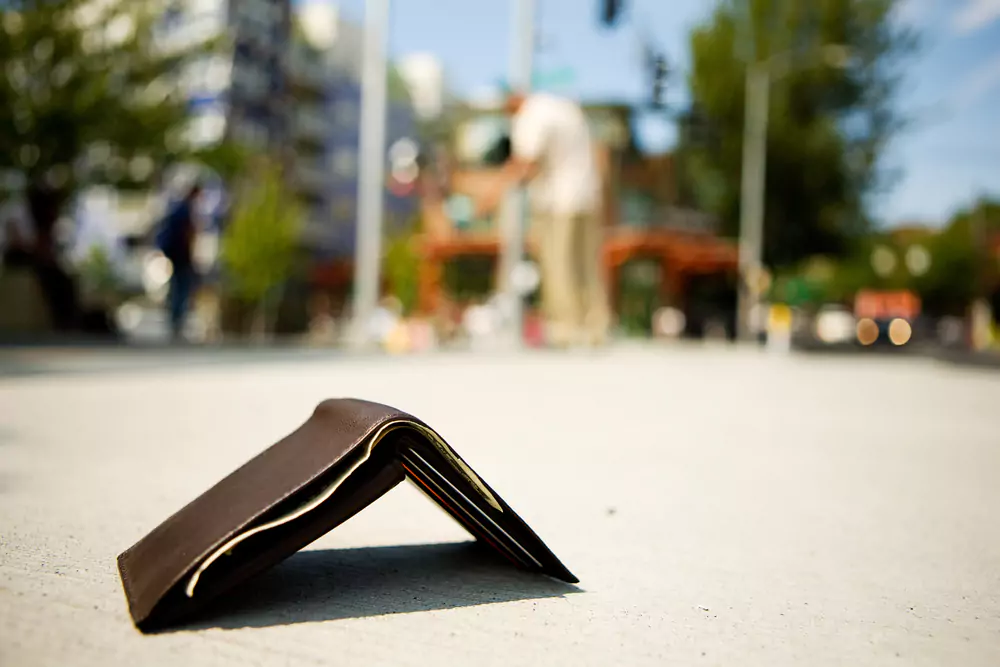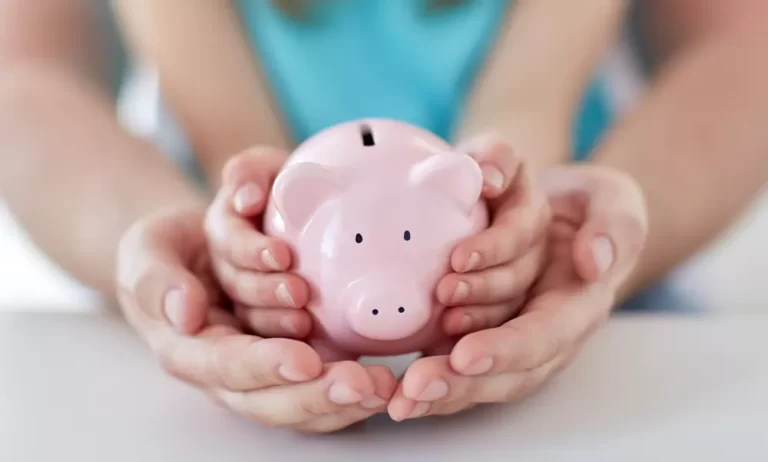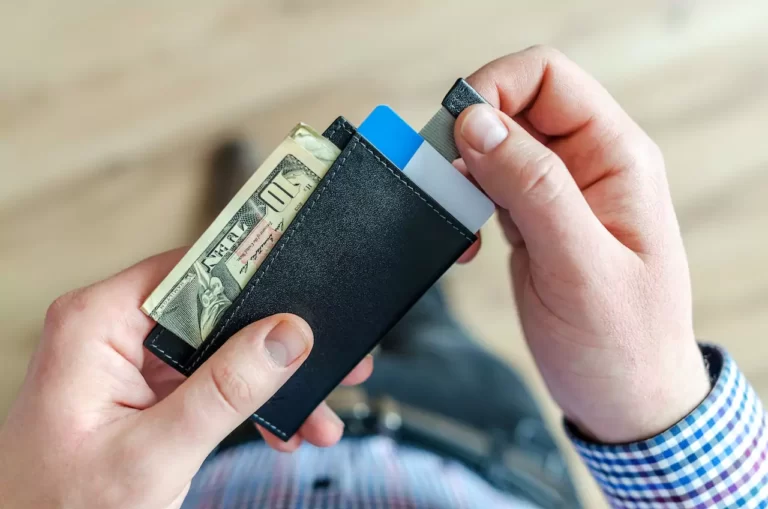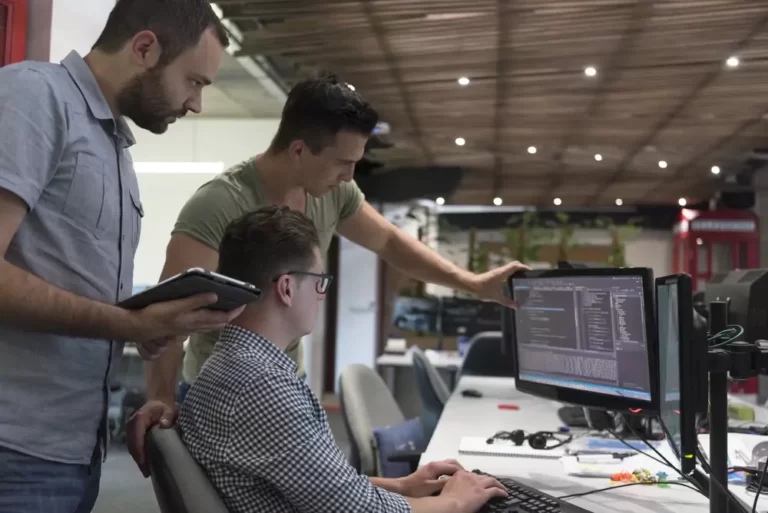Money Lessons From The First Time I Lost My Wallet

Have you ever lost your wallet? If so, you know the initial panic that sets in when you realize it’s missing. Your mind races with thoughts of the money, cards, and personal information that could be in the hands of a stranger.
But losing your wallet can also teach you valuable money lessons, as I learned from my own experience. In this article, I’ll share the lessons I learned from the first time I lost my wallet.
We’ll explore how to cope with the initial panic, assess the damage, and take steps to protect your finances and personal information. From dealing with identity theft concerns to minimizing your risk in the future, this article will help you learn from your mistakes and take control of your finances.
The Initial Panic: Coping with the Loss of Your Wallet
You’re standing there, heart racing and palms sweating, as you realize that the one thing that holds your life together has disappeared without a trace. Your wallet, with all your identification, credit cards, and cash, is gone. You start to panic, wondering how you’ll survive without these essential items.
But don’t worry, there are coping strategies you can use to help you through this difficult time. The emotional impact of losing your wallet can be overwhelming. You may feel violated, vulnerable, and angry. But it’s important to take a deep breath and stay calm.
First, retrace your steps and see if you can locate your wallet. If that doesn’t work, cancel your credit cards and order new ones. Contact your bank and report any missing checks. Finally, if you’re unable to locate your wallet, report it to the police.
Remember, losing your wallet is a setback, but it’s not the end of the world.
Assessing the Damage: Taking Stock of What’s Missing
Take a deep breath and start checking every pocket and bag, realizing that your ID, credit cards, and cash are nowhere to be found. As you assess the damage and take stock of what’s missing, you may start to feel overwhelmed by the emotional toll this loss has taken on you.
You might feel angry with yourself for being careless or anxious about the potential financial impact of this incident. The emotional toll of losing your wallet can be significant.
You may feel violated, as if someone has invaded your personal space and taken something that belongs to you. You might also feel embarrassed or ashamed, especially if you have to explain the situation to others.
Additionally, there is a practical aspect to consider. Replacing your ID and credit cards can take time and money, and the potential financial impact of this loss can be significant. It’s important to take a deep breath and focus on what you can do to mitigate the damage, whether it’s canceling your cards or filing a police report.
Contacting Your Bank and Credit Card Companies
Once you’ve contacted your bank and credit card companies, they can assist you in canceling any missing cards and potentially preventing any fraudulent activity on your accounts. It’s important to act fast, as any unauthorized use of your cards can lead to financial damage.
When calling your bank, inform them that you’ve lost your wallet and that you need to cancel your cards immediately. They may ask for your personal information to verify your identity, so be ready to provide that information.
When contacting your credit card companies, be prepared to give them your account number and inform them that your card has been lost or stolen. They will then cancel the card and issue you a new one. It’s a good idea to ask about any recent transactions made on your account to ensure that there hasn’t been any suspicious activity.
To prevent future incidents, consider setting up alerts for any unusual activity on your accounts and keeping track of your cards regularly. Remember to always be vigilant and protect your personal information to avoid any financial loss.
Dealing with Identity Theft Concerns
If you’ve ever felt violated and angry after discovering that someone has stolen your identity, don’t panic – there are steps you can take to regain control of your personal information and protect yourself from future harm.
The first step is to contact your bank and credit card companies to report any fraudulent activity and freeze your accounts. Once you’ve done that, it’s important to start taking preventative measures to ensure that this doesn’t happen again.
Here are three things you can do to prevent identity theft and protect your personal information:
- Enroll in credit monitoring services that will alert you to any suspicious activity on your credit report.
Use strong, unique passwords for all of your online accounts and consider using a password manager to keep them organized and secure.
- Be wary of providing personal information online or over the phone, especially if you didn’t initiate the contact. If you do need to provide sensitive information, make sure you’re dealing with a trusted source.
By taking these steps and reporting any fraudulent activity promptly, you can minimize the damage done by identity theft and prevent it from happening again in the future.
Replacing Your Lost ID and Other Documents
Getting a replacement for your lost ID and other important documents can be a frustrating experience, but there are steps you can take to make the process smoother.
First, if you’ve lost your passport, you should immediately report it to the authorities. You can do this by contacting the nearest embassy or consulate of your country. They’ll provide you with instructions on how to apply for a new passport. You’ll need to fill out an application form, provide identification documents, and pay a fee. The process may take several weeks, so it’s important to start as soon as possible.
To prevent future loss of important documents, it’s recommended to keep them in a secure place, such as a safe or a locked drawer. You can also make copies of your documents and store them in a separate location, such as a cloud storage service or a trusted family member’s house.
It’s also a good idea to keep a list of important phone numbers, such as the embassy or consulate of your country, your bank, and your credit card company. This’ll help you quickly report lost or stolen items and prevent further damage.
The Cost of Losing Your Wallet: Budgeting for Unexpected Expenses
Now that you’ve replaced your lost ID and other documents, it’s time to face the harsh reality of losing your wallet: unexpected expenses. Losing your wallet not only means losing money, but it also means spending money on things you wouldn’t normally have to pay for. This is why budgeting strategies are essential to help you prepare for unexpected expenses.
Here are three budgeting strategies you can use to prepare for the cost of losing your wallet:
Build an emergency fund. An emergency fund is a separate savings account that you can use for unexpected expenses, such as losing your wallet. Aim to save enough to cover at least three to six months of living expenses.
Track your expenses. Knowing where your money goes is crucial to budgeting effectively. Use apps or spreadsheets to track your expenses and identify areas where you can cut back.
- Have a backup plan. In case you lose your wallet, have a backup plan in place. This can include having a spare credit or debit card, keeping cash in a separate location, or having a trusted friend or family member who can lend you money if needed.
By implementing these budgeting strategies, you’ll be better prepared for unexpected expenses, including losing your wallet.
Preparing for Future Emergencies: Creating a Financial Safety Net
Creating a financial safety net is crucial for protecting yourself from future emergencies and ensuring you have the resources to handle unexpected expenses. One way to create a financial cushion is to start emergency fund planning.
This means setting aside some money regularly for unexpected expenses, such as a medical emergency or sudden job loss. It’s recommended that you have three to six months’ worth of living expenses saved in an emergency fund.
To start emergency fund planning, you can begin by creating a budget and identifying areas where you can cut back on expenses. This can include reducing your monthly subscriptions or eating out less often. You can also explore ways to increase your income, such as taking on a side hustle or negotiating a raise at work.
Remember, the key to creating a financial safety net is to start small and be consistent. Over time, your emergency fund will grow, and you’ll have peace of mind knowing that you’re financially prepared for any unexpected expenses that may come your way.
Keeping Track of Your Finances: Tips for Staying Organized
Make sure you stay on top of your finances by keeping track of your spending habits and organizing your bills and receipts in a way that works for you.
One way to do this is by using digital tools such as budgeting apps or online banking platforms to monitor your transactions and account balances. These tools can also help you create a budget and set financial goals that you can track over time.
However, if you prefer a more hands-on approach, you can opt for paper systems like a physical budget planner or a filing system for your bills and receipts. Whichever method you choose, the key is to be consistent and regularly review your finances.
Set aside time each week or month to update your records and assess your progress towards your financial goals. With these budgeting strategies in place, you can better understand your spending habits and make informed decisions about your finances.
Minimizing Your Risk: How to Protect Your Wallet and Personal Information
Protect your hard-earned cash and personal information with simple tips to ensure peace of mind. In today’s digital age, it’s easy for hackers to gain access to your financial and personal information. One way to minimize your risk is by protecting your passwords. Avoid using the same password for multiple accounts and make sure to use a combination of uppercase and lowercase letters, numbers, and symbols. Consider using a password manager to help you keep track of your passwords.
Another way to protect your wallet and personal information is by securing your online accounts. Enable two-factor authentication whenever possible, which adds an extra layer of security by requiring a code in addition to your password to access your account. Avoid using public Wi-Fi to access sensitive information, as it is easy for hackers to intercept your data. Take the time to review your bank and credit card statements regularly to ensure that there are no unauthorized transactions. By taking these simple steps, you can minimize your risk and protect your hard-earned money and personal information.
| Tips for Protecting Your Wallet and Personal Information | |
|---|---|
| Protect your passwords | Use a combination of uppercase and lowercase letters, numbers, and symbols. Consider using a password manager. |
| Secure your online accounts | Enable two-factor authentication whenever possible. Avoid using public Wi-Fi to access sensitive information. |
| Review your bank and credit card statements | Regularly review your statements to ensure there are no unauthorized transactions. |
Learning from Your Mistakes: Reflections on the Experience
Now that you know how to protect your wallet and personal information, it’s time to reflect on the experience of losing your wallet. It can happen to anyone, and it’s important to learn from your mistakes.
Here are some reflections and lessons learned from losing your wallet for the first time.
Firstly, losing your wallet can be a humbling experience. It reminds you of the importance of being careful and responsible with your belongings. It also makes you realize how much you rely on your wallet and the important items inside, such as your ID and credit cards.
Secondly, losing your wallet can be a learning experience. It teaches you to be more vigilant and proactive in protecting your personal information. You may now consider taking steps to safeguard your wallet and personal information, such as keeping backups of important documents and being more mindful of who you share your information with.
Overall, losing your wallet can be a tough lesson, but it can also be a valuable one.
Moving Forward: Taking Control of Your Finances
You’re ready to take the reins and manage your finances like a pro in this next section. It’s time to learn from your mistake and take control of your financial future. Here are four steps to help you move forward:
Create a budget: This is a critical step in managing your finances. By creating a budget, you can track your spending, identify areas where you can cut back, and set financial goals for the future. Make sure to include all of your income and expenses, including bills, groceries, and other monthly expenses.
Set financial goals: Whether it’s saving for a down payment on a house or paying off debt, setting financial goals will help you stay motivated and focused. Make sure your goals are realistic and achievable, and create a plan to achieve them.
Seek financial advice: If you’re feeling overwhelmed or unsure about how to manage your finances, don’t be afraid to seek professional help. A financial advisor can help you create a budget, set financial goals, and create a plan to achieve them.
Stay disciplined: Managing your finances requires discipline and commitment. Stick to your budget, stay on top of your bills, and avoid unnecessary expenses. Remember, every financial decision you make today will impact your financial future.
Conclusion
Now that you’ve gone through the experience of losing your wallet, it’s important to take the lessons you’ve learned and apply them to your future financial decisions.
Remember to always keep an eye on your personal belongings and be cautious when sharing your personal information. Consider investing in a wallet with RFID protection to prevent any potential identity theft.
Don’t let this experience defeat you – instead, use it as an opportunity to take control of your finances. Create a budget and stick to it, regularly check your bank statements for any suspicious activity, and always have a backup plan for emergencies.
Losing your wallet may have been a setback, but it’s a valuable lesson that can ultimately lead to a stronger financial future.





